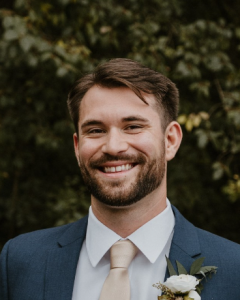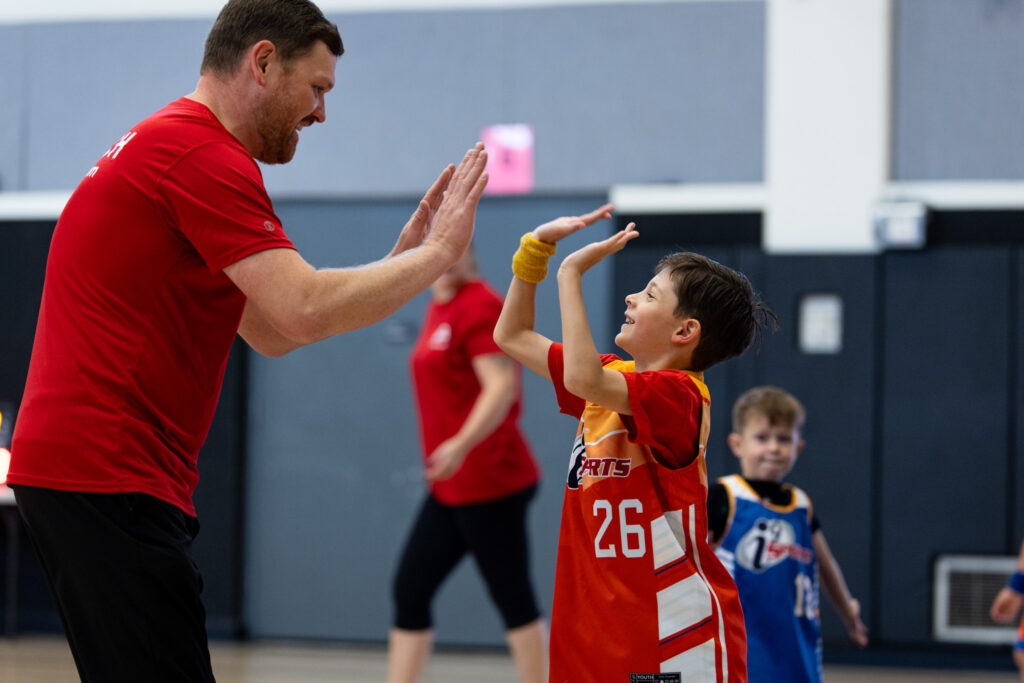How to Spot Unhealthy Perfectionism and Support Your Athlete’s Mental Health
While youth sports offer kids amazing benefits—like confidence, teamwork, and physical activity—they can also come with pressure, stress, and anxiety when played in a negative environment. According to Johns Hopkins Medicine, many student-athletes face mental health challenges like anxiety and unhealthy perfectionism. As parents and coaches, you play a key role in supporting the whole athlete— not just their physical skills, but their mental and emotional well-being. Below are the signs of unhealthy perfectionism and how to support your athlete so they have a positive youth sports experience.
Spot the Signs of Unhealthy Perfectionism:
One of the main reasons kids play sports is to learn something new and improve their skills while having fun, but perfectionism can creep in when they start to fear mistakes or feel like they’re never “good enough.”
Signs of unhealthy perfectionism:
- Avoiding challenges or trying new things
- Getting overly upset over small mistakes
- Being overly sensitive or defensive to feedback
- Giving up or procrastinating
- Dismissing their accomplishments
Keep an eye out for these signs. If they pop up consistently, it may be time to adjust expectations and refocus on the enjoyment, effort, and growth that sports provide.
Tips for Parents:
If your kids are experiencing any signs of unhealthy perfectionism or negativity towards their performance, here are three things you can do to encourage them and provide support.
1. Celebrate the Effort, Not Just the Outcome
Ask questions like “What did you enjoy today?” or “What did you learn at practice?” instead of “Did you win?” Recognizing your child’s effort, attitude, and progress builds confidence and motivation—without the pressure to be perfect.
2. Talk About Nerves—and Normalize Them
It’s normal for kids to feel anxious and nervous before a game or tryout. Let them know those feelings are valid and manageable. Be vulnerable and share times when you get nervous or anxious. Being nervous or anxious just means that you care about whatever you’re doing!
3. Be a Safe Space
Keep the lines of communication open. Ask open-ended questions and listen without rushing to solve the problem. Ask your child how they are feeling before a practice or game; this helps them start to identify and process their feelings and emotions.
Tips for Coaches:
As a coach, it’s up to you to create a positive environment for youth athletes. Here are three things you can do to make sure your athletes are growing and enjoying the game. After all, you want them to come back next season!
1. Set Individual Goals
Not every athlete will be the top scorer—and that’s okay. Encourage kids to set personal goals, like improving their passing or staying positive during tough plays. Take some time before games and have athletes identify their goals. Encourage them to focus on the process (giving their best effort, executing their pre-shot routine) vs. outcomes (winning or scoring a goal).
2. Balance Feedback with Encouragement
Kids learn best when they feel supported. Focus your coaching on the positives such as what they did well, one thing to improve, and encourage them to keep trying. As a coach, you should want every kid to come back next season- keeping things fun and positive is the best recipe to keep kids playing.
3. Build Team Connection
A supportive team culture reduces pressure and builds belonging. Praise teamwork, kindness, and leadership just as much as scoring. Ending each practice and game with a cheer, secret handshake, or a shout-out circle are great ways to build connections between players.
Your child’s experience in youth sports depends on many different factors. Ultimately, it’s up to coaches, parents, and youth sports organizations to work together and make their experience a positive one that makes kids want to keep playing.
Find A Positive Youth Sports Experience
At i9 Sports®, we know that great experiences in youth sports come from more than just skills and scores. When kids feel supported, encouraged, and free to be themselves, they grow into not only better athletes but more resilient people.
Our youth sports leagues, camps, and clinics are designed to be a safe, supportive, and empowering place for every player at every stage. When you choose to play with i9 Sports®, you get coaches that teach sportsmanship values such as leadership and respect alongside age-appropriate skills. This keeps the focus on learning and growth versus perfectionism.
Choose a fun and positive youth sports experience— find an i9 Sports® program near you and sign up today!
About the Author

Tyler Munoz
Manager Of Sport, i9 Sports®
Tyler is responsible for creating and implementing national training programs for coaches and over 240 franchisees to achieve the company’s mission to help kids succeed in life through sports.
Tyler grew up in Modesto, California, playing baseball, basketball and football from the age of 5. Sports have always been at the center of his life and have been something that he has dedicated his life to making a positive impact in.
He discovered his passion - supporting coaches to ensure they can provide a quality sport experience to the athletes that they coach during his education at California State University, Fresno. He earned his Master of Arts in Kinesiology – Sport Psychology and his Bachelor of Arts in Political Science with a Minor in Sport Coaching from California State University, Fresno.
After graduating, Tyler spent a year in New Zealand and Australia, where he studied and participated in the two countries’ sport environments, athlete development systems, and coaching models.
After his travels, he joined the United States Olympic and Paralympic Committee’s (USOPC) Coaching Education Department as the American Development Model and Youth Development fellow. Tyler was able to collaborate and coordinate sport development projects with several National Governing Bodies and assist the Coaching Education team with creating and updating resources related to coach training and the American Development Model.
Tyler continued to consult with the USOPC on initiatives related to the American Development Model the Quality Coaching Framework and ultimately, developed an online course, Foundations of the American Development Model. In 2020, he accepted a position with USA Football as the Senior Manager of Coach Education.
During his three years there, he was able to redesign the organization’s coach education certification, which led to USA Football achieving its’ one millionth coach certification in 2022. Tyler has coached football, baseball, and basketball at all levels of sport (recreational, scholastic, national, and international) throughout his life and is passionate about giving back to the communities in which he has lived.
Presentations and Awards:
College of Health and Human Services- Outstanding Project Award
Presented graduate project at the 39th Annual Central California Research Symposium
Olympic & Paralympic Coach Magazine Spring 2020- ADM & Me: Insights in Learning from my USOPC Fellowship
Presented at the USA Football National Conference 2020
Presented at the National Post Olympic and Paralympic Conference of Sport & Science at the Wingate Institute in Israel
What Does Fun Look Like? - Interview with Athlete Era
